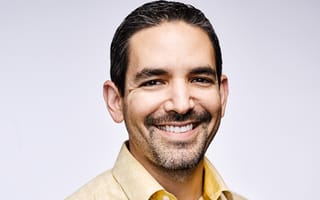
Cambridge-based startup and MIT spinout Quaise Energy announced on Tuesday its $40 million Series A round led by Safar Partners, a venture capital firm that prioritizes investments in tech startups from MIT, Harvard University and the University of Rochester.
Quaise Energy is on a mission to develop geothermal technology to make renewable power. This is done by using drilling systems to access heat from within the earth, which later turns into steam that then creates electricity.
“Geothermal is not a new idea, but it hasn’t been seriously considered as a renewable, baseload source of energy. It’s still relatively early in terms of an investment trend,” Carlos Araque, CEO and co-founder of Quaise Energy, told Built In via email.
After working in the oil and gas industry for 15 years, Araque was tired of seeing the negative impacts of the industry and wanted to do something to make things better, according to the company website. So, he founded Quaise Energy.
The startup’s latest funding round will go toward developing drilling systems that can harness geothermal energy by 2024. Quaise Energy also plans to grow its teams in Boston, Houston and Cambridge, U.K. — doubling its number of engineers from 20 to 40.
“A rapid transition to clean energy is one of the biggest challenges faced by humanity. Quaise’s solution makes us optimistic for a future where clean, renewable energy will secure the future of our planet,” Arunas Chesonis, managing partner at Safar Partners, said in a statement.
The startup plans to produce millimeter-wave drilling systems capable of reaching depths between 10 and 20 kilometers. According to a company statement, at these depths, “geothermal energy is power-dense, virtually unlimited and available everywhere on the planet.”
Geothermal drilling, however, can create stability problems by conducting waves similar to small earthquakes, according to Solar Reviews. For context, according to the U.S. Department of the Interior, shallow earthquakes are “between 0 and 70 kilometers deep; intermediate earthquakes, 70-300 kilometers deep; and deep earthquakes, 300-700 kilometers deep.”
Araque acknowledges that drilling needs to be regulated with contingency plans.
“The problems arise when you’re not paying attention and you’re not planning. The risks are manageable and they are well understood, as they are in oil and gas,” Araque said. “Quaise Energy’s approach will allow us to do geothermal anywhere, so in non-critical zones far away from tectonic plate boundaries, which greatly mitigates risk and opens many opportunities.”




